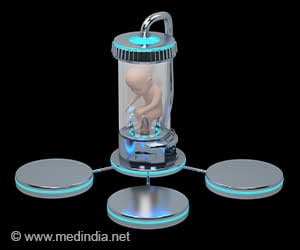
"Our model is the first pregnancy-specific animal model and our predictive assay is the first one where we can go back to the first trimester and predict problems," said Surendra Sharma of the Brown University
Building on research linking the presence of the immune system secretion Interleukin-10 (IL-10) to a successful course of pregnancy, the researchers started experimenting with mice genetically engineered to lack IL-10.
They hypothesized that if they isolated blood serum from human patients with preeclampsia and gave a dose of it to the mice, the rodents would develop preeclampsia symptoms.
Just to be sure, the researchers gave the preeclampsia serum to mice that were not pregnant.
Nothing happened, confirming that the onset of preeclampsia symptoms in the engineered mice was a consequence of their pregnancy.
Advertisement
After observing how preeclampsia serum caused disruption to the spiral arteries, the team reasoned that preeclampsia serum might also disrupt the formation of vasculature in the lab.
Advertisement
The researchers found that vasculature developed normally in the presence of serum from women with normal pregnancies.
But they also found that preeclampsia serum taken from women as early as 12 to 14 weeks into their pregnancies, about 10 to 12 weeks before they were diagnosed with preeclampsia, was able to disrupt vascular formation.
"The idea is that we can predict preeclampsia ahead of time and women can be treated," added Sharma.
The findings were reported in The American Journal of Pathology.
Source-ANI








